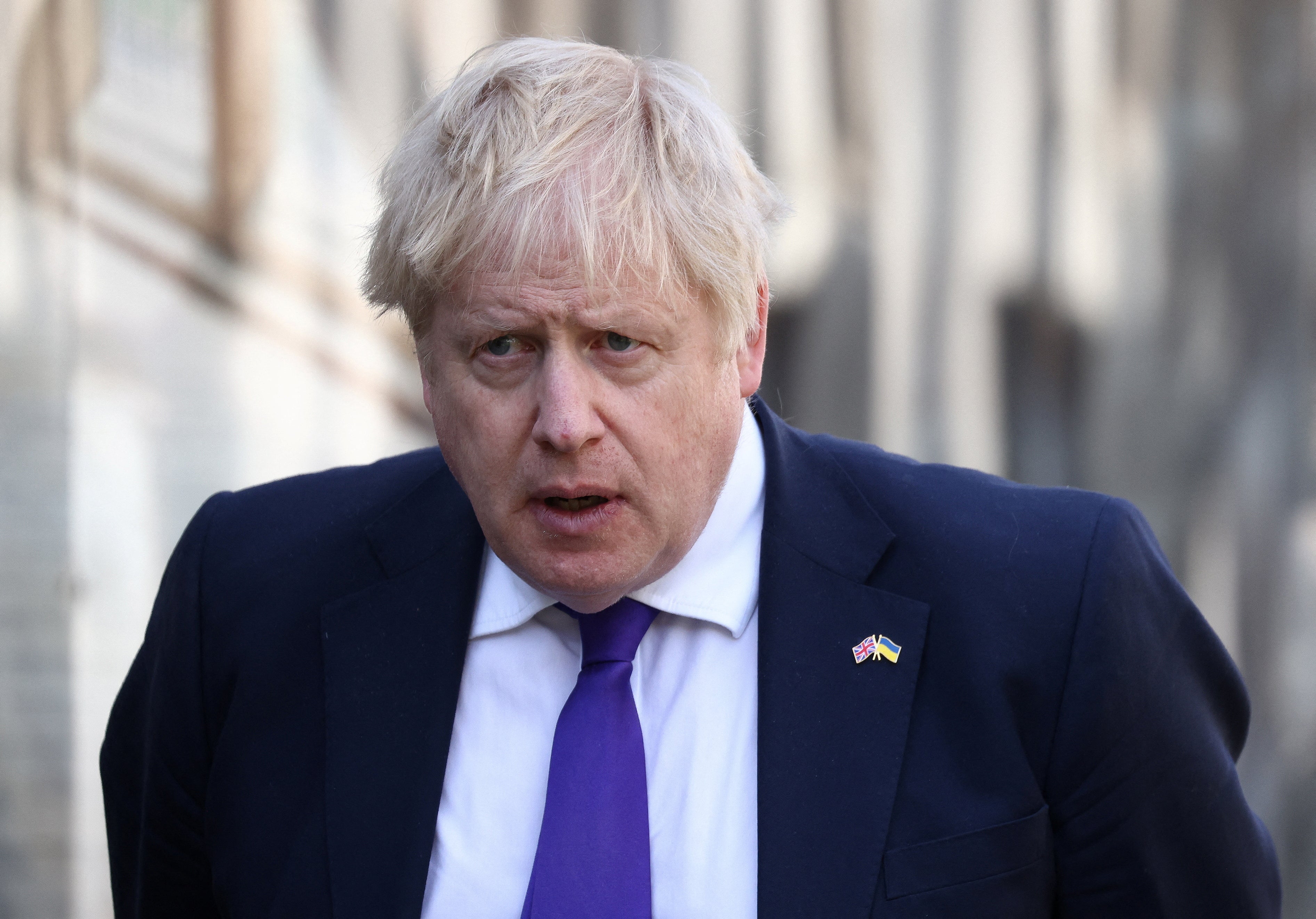Voters still think Boris Johnson should quit if fined by police over Partygate - poll
Exclusive: Conservatives close gap on Labour as response to Ukraine war boosts prime minister’s standing

Your support helps us to tell the story
From reproductive rights to climate change to Big Tech, The Independent is on the ground when the story is developing. Whether it's investigating the financials of Elon Musk's pro-Trump PAC or producing our latest documentary, 'The A Word', which shines a light on the American women fighting for reproductive rights, we know how important it is to parse out the facts from the messaging.
At such a critical moment in US history, we need reporters on the ground. Your donation allows us to keep sending journalists to speak to both sides of the story.
The Independent is trusted by Americans across the entire political spectrum. And unlike many other quality news outlets, we choose not to lock Americans out of our reporting and analysis with paywalls. We believe quality journalism should be available to everyone, paid for by those who can afford it.
Your support makes all the difference.A majority of voters still believe that Boris Johnson should resign if fined by police over lockdown-breaching parties in Downing Street, according to a new poll.
Johnson loyalist Jacob Rees-Mogg last week said that war in Ukraine had exposed the Partygate row as trivial “fluff” which should now be dismissed as a distraction.
But almost two-thirds of voters (64 per cent) quizzed for The Independent by pollsters Savanta ComRes said the prime minister should go if issued with a fixed penalty notice by the Metropolitan Police – including 45 per cent who said he should quit whether or not he got a fine. Just 23 per cent said he should stay PM regardless of the outcome of the inquiry.
Some 40 per cent of those who voted Conservative in 2019 said Mr Johnson should resign if fined, compared to 47 per cent who said he should stay on.
The poll showed signs of an improvement in the standing of Mr Johnson and the Conservative Party in the wake of Vladimir Putin’s unprovoked invasion of Ukraine.
Those rating Johnson’s performance as prime minister as “good” rose seven points to 38 per cent, from 31 per cent in a similar poll conducted in February. Numbers saying he was doing a bad job fell from 63 to 57 per cent over the same period.
Meanwhile, Conservatives narrowed Labour’s lead in general election voting intentions by three points over the month.
Sir Keir Starmer’s party led the field with 39 per cent in the poll conducted last weekend (19-20 March), down one point since the previous poll on 19-20 February.
Labour were four points ahead of Tories on 35 per cent, up two points over the month.
Starmer’s personal ratings continued to improve, with 43 per cent saying he was doing a good job as leader of the opposition, compared to 38 per cent in February.
The proportion saying the Labour leader was doing badly fell from 45 to 40 per cent over the same period, meaning that his overall rating is now in positive territory.
On the day he unveils his spring statement mini-budget, chancellor Rishi Sunak saw his personal ratings improve, with 48 per cent saying he is doing a good job and 36 per cent a bad one, compared to a 46-39 split in February.
Scotland Yard announced on Monday that officers in the Operation Hillman inquiry are now interviewing witnesses to the string of parties in No 10 and other Whitehall offices in 2020-21, after collecting more than 100 questionnaires from ministers and officials including Mr Johnson. The prime minister has not yet been interviewed.
Speaking at last week’s Conservative conference in Blackpool, Mr Rees-Mogg said that the Ukraine war had exposed Partygate as “the disproportionate fluff of politics that it was, rather than something of fundamental seriousness about the safety of the world and about the established global order”.
But he was slapped down by party chair Oliver Dowden, who said the allegations “should be taken seriously” and not dismissed.
At least two of the Tory MPs who submitted letters declaring no confidence in the prime minister have withdrawn them, saying that it would be wrong to change leader during wartime.
- Savanta ComRes interviewed 2,203 UK adults on 19-20 March.
Join our commenting forum
Join thought-provoking conversations, follow other Independent readers and see their replies
Comments